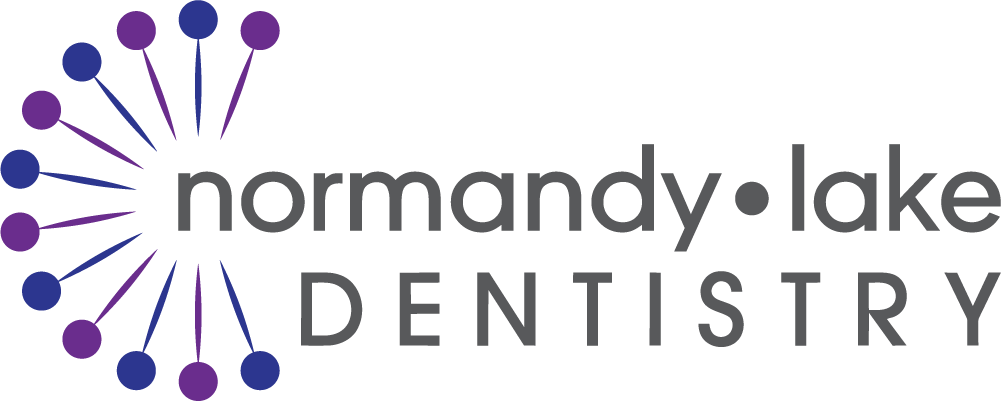Severe Tooth Decay: How Does It Occur?
Tooth decay, also known as cavities, is the softening of your tooth enamel and refers to the damage of the structure of the tooth caused by acids that are created when plaque bacteria break down sugar in your mouth. If cavities are not treated, they can lead to toothaches, infection, and even tooth loss.
We want to make sure our patients know what tooth decay is and what the causes are. That’s why we’ve compiled a list of how cavities occur and what to watch out for.
Eating and Drinking
This is where it all starts. We have to eat and drink to stay alive, but this is one of the main causes of tooth decay. Food particles and carbohydrates can stay on your teeth until you brush and floss them, and even then some can still remain on your teeth. Food that clings to your teeth is a huge factor of tooth decay. Make sure you brush and floss your teeth regularly and thoroughly, especially after consuming sugary drinks and food.
Dry Mouth
Dry mouth can cause more plaque and bacteria buildup, leading to cavities. Saliva helps wash away plaque and can help buffer the acid. Make sure you are staying hydrated!
Poor Oral Hygiene
This one might be the most obvious, but poor oral hygiene can definitely cause tooth decay. Brushing and flossing your teeth daily, plus regular trips to the dentist are a must.
Plaque Formation
If not removed from your teeth, plaque can build on your teeth over time. It attacks the enamel of your teeth and can eventually cause holes in your teeth.
While tooth decay can be scary, the good news is that we are here for you. We can address the issue and find a solution for you in no time. If you think you’re experiencing tooth decay, call one of our locations and we’ll get you an appointment in the near future.
Four Signs You Need Emergency Dental CareEasy Home Remedies to Whiten Dentures
Dentures can be such an amazing investment, but they can also be difficult. False teeth undoubtedly need as much, if not more attention than regular teeth, due to the high presence of bacteria and risk of infection. However, taking good care of your dentures doesn’t have to break the bank or cause you an inconvenience. There are several at home remedies to clean and whiten your false teeth that will help get you the healthiest and longest life span for your new teeth.
1. Rinsing Right After Eating or Drinking
The best way to keep your dentures looking white, is to remove and rinse them right after enjoying highly pigmented foods and drinks such as coffee, wine, or berries. Prevention is key and making sure you clean your dentures will help them stay white and last longer.
2. Soak Dentures In Denture Solution
You can get denture- soaking solutions at your local drug store, or you can get commercial grade cleaners at or through your denture or dentist clinic. Remember- always brush your false teeth before cleaning them.
3. Soak Dentures In At-Home Solution
You can also make your own at- home solution. Use baking soda or white vinegar, as this will help loosen up the plaque so you can brush it off easier. Make sure to check with your dentist to see if this solution is right for your false teeth.
4. Soak in Mouthwash
Soaking your false teeth in equal parts mouthwash and water and letting soak for a half an hour is also a good way to whiten your dentures. Make sure you thoroughly wash them when you take them out!
Keeping your false teeth white doesn’t have to be stressful for you or your loved ones. Use these home remedies to keep your dentures looking new and clean. If you have any questions, don’t hesitate to call one of our three locations. We are always here for you to answer any concerns about your teeth.
7 Tips for Whiter Dazzling TeethDentures: To Be or Not to Be – That is the Question
Sometimes things happen to your teeth. Whether it’s the result of an unfortunate accident or just old age, you may have lost some of your teeth, as many people do. Unless you’re a shark (or under the age of six), you won’t be growing them back! Fortunately, thanks to modern dentistry, a well-fit set of dentures can help your mouth look and feel normal again.
The history of dentures goes back hundreds of years. They were a little crude at first. You’ve probably heard of Benjamin Franklin’s wooden dentures. They were better than nothing but still a long way from looking and working like real teeth.
The dental community has worked out many of the kinks since dentures were made of wood. Still, even with modern advancements, deciding to wear dentures every day is a big decision. It can involve making some permanent changes to the way you live your life. So, it’s good to know what to expect before you decide dentures are the right solution for you. Here are some of the pros and cons…
Dentures Pro: You Can Eat and Speak Normally
Tooth loss carries with it more than aesthetic consequences—after all, we grow them for a reason. When you’re missing a significant number of teeth, it can be difficult to chew your food or pronounce certain words clearly. Dentures can fix both of these issues, allowing you to speak and eat as you normally would.
Dentures Con: Unusual Feeling While Eating
Dentures can allow you to eat your food in a somewhat normal manner, but the sensation can seem strange when you’re first getting used to your replacement teeth. In addition, the presence of the dentures in your mouth may make food taste different. They cover your palette, so they can block the taste of food.
Dentures Pro: They Help Fill Out Your Face Where Teeth Are Missing
Dentures not only affect the appearance of your smile but also can change the look of your face in general. When you’re missing teeth, it may be difficult to hold your jaw in its normal position and your face might appear to “droop”. Even when your mouth is closed, dentures improve your appearance by providing needed structure for your jaw and face.
Dentures Con: Possible Removal of Additional Teeth
Depending on the condition of your teeth, to properly fit your dentures you may need to remove a few (or all) healthy teeth. If you’re considering dentures, chances are you’ve lost quite a few already. It might not be possible to wear dentures unless your dentist clears away additional teeth. However, this isn’t true in every situation or with every set of dentures, so talk with your dentist to see what your options are.
Dentures can be very beneficial overall for someone who’s lost a significant number of teeth. It can make their day-to-day experience more normal – speaking and eating are much easier with teeth or dentures. And the cons are mostly minor. If you’re sick of living with missing teeth and you believe dentures might be a good solution, give one of our locations a call and we’ll be happy to help you decide whether dentures, for you, are to be or not to be!
Easy Home Remedies to Whiten DenturesWho Qualifies as a Good Candidate for Dental Veneers?
Everyone wants an award winning smile, but very few people have one naturally. With all the new technology and techniques coming out, it’s easier than ever to get the smile of your dreams. One great option to achieve that is dental veneers.
It’s a well known fact that porcelain veneers are one of the most effective and popular solutions to cover up a single or several teeth imperfections. Dental veneers are a really great option for people who want to improve the appearance of their teeth. But who qualifies as a good candidate for dental veneers?
What Are Dental Veneers
Veneers are essentially a thin, durable mask that can be applied to your natural teeth. Once applied to your teeth, the veneers instantly change the appearance of your teeth. Veneers are made of a very thin shell of porcelain, which is carefully selected so it matches the look and color of your teeth.
Depending on how they are made and what your needs are, veneers can whiten your teeth, close large gaps between your teeth, change the shape of your teeth, cover up crooked teeth, or fix large cracks or chips. Each veneer will be customized by your dentist from the length and width of the veneer to the overall shape, thickness, and color.
Who is a Good Candidate for Veneers?
Veneers are a great cosmetic dental treatment that helps people become confident with their smiles again. The following are signs you might be a good candidate for veneers:
- You want to fix several cosmetic problems with your teeth at once
- You want to fix discolored teeth
- You want to correct stains on your teeth from old fillings
- Ability to avoid chewing on your nails, crunching hard candy or food, or gnawing on pens – these bad habits can damage veneers.
- Sufficient tooth enamel must be present – your natural teeth need to have enough enamel left after the small layer has been removed to create a strong bonding surface for the veneer
Veneers are a great option for many people to correct their smile. Give one of our locations a call today to see if veneers are the right choice for you.
The Pros and Cons of Dental VeneersHow Does a Cosmetic Dentist Fix Your Teeth?
What’s the first thing you see when meeting someone new? Oftentimes, it’s their smile. And if someone doesn’t have a perfect smile, it can be a source of insecurity for them. Luckily, there are ways to help you fall in love with your teeth and cosmetic dentists are here to help!
Cosmetic dentistry is dentistry aimed at creating a positive change to your teeth and your smile. Whether your teeth are chipped, stained, misaligned, or worn, cosmetic dentistry can improve your smile and your confidence. Here are just a few ways cosmetic dentistry can help fix your teeth.
Enamel Abrasion
This procedure is a way to remove discoloration. The procedure uses a fine pumice in a micro-abrasion machine to remove surface stains. While this process doesn’t work for stains inside the tooth or intrinsic stains, it works wonders to remove stains caused by things like tobacco, wine, coffee and berries.
Dental Veneers
Veneers, the gold standard for cosmetic dental procedures, are thin, custom made shells of tooth colored porcelain that cover the front surface of the teeth. About a half- millimeter of enamel from the tooth is gently shaved and then an impression is taken. Then, the impression is sent to a dental lab for custom veneers.
While you’re waiting for your permanent veneers, you’ll have temporary ones. Once you get your permanent set, they’ll be cemented to the front of the teeth and you can change the size, color, shape or length.
Teeth Whitening
Whitening your teeth is one of the most common and quickest ways to change your smile. This is the perfect solution for someone who doesn’t need anything more than a bit of brightening for their teeth or someone who isn’t quite ready for a huge commitment.
Fortunately, teeth whitening can be done in a dentist’s office, or it can be done at home. However, it’s wise to get the bleach from your dentist to make sure you’re getting the safest and best product.
Dental Bonding
Dental bonding is a great option for people who have deeply stained or chipped teeth. During this procedure, a tooth- colored, putty- like resin is applied to the tooth and hardened with an ultraviolet or laser light, bonding the material to the tooth. Your dentist can then trim, shape and polish it.
Invisalign® Braces
These are perfect for not only kids, but adults as well because no one can tell you’re wearing them! They’ll help you get the perfect smile that you’ve always wanted. While they’re great for straightening teeth, they also help with chronic pain caused by misalignment, such as headaches.
Whatever you want to do to improve your teeth, we’ve got you covered. We want all of our patients to be confident in their smiles. If you have any questions about different procedures used for cosmetic dentistry, please reach out to one of our three locations across Florida. We’ll get you set up with an appointment and our team will get you the right process for your needs.
What to Know Before Getting VeneersPediatric Dental Care: Starting Your Child Off on the Right Tooth
The quality of dental care a child receives while growing up can have a huge impact on their teeth — and even their general health — for the rest of their life. Dental care sets the stage for the way teeth develop as they grow, and it’s important to begin with a good foundation. To reinforce healthy brushing habits with children and make sure their teeth are coming in nicely, we recommend visiting the dentist early, with a first visit at about twelve months of age, which is usually less than six months after their first tooth shows up.
Here are a few specific reasons to take your children to the dentist early in their lives:
Baby Teeth are Important
Your child’s baby teeth aren’t disposable just because they’re temporary. They play an important role in your child’s development. Making sure their baby teeth are in order will have a positive effect long after they lose them. Baby teeth act as placeholders for adult teeth; they help your child’s jaw and gums develop in the right way. Not only that, healthy baby teeth help children learn to speak by supporting the shape of the mouth correctly. And a dazzling smile is good for their self-esteem.
Experience Calms Anxiety
Many grownups feel anxious about going to the dentist. However, if you bring your children in for a visit at about the age of twelve months, they’ll be too young to think anything bad is going on and they won’t likely be very worried. One of the best ways to help children avoid the development of dental anxiety is to begin building a habit of regular dental visits early in life. Parents who wait until children are two years of age or older likely will have a much rougher time with visits at early ages, and the children could develop lifelong anxiety about going to the dentist.
Tooth Decay Comes Early
Tooth decay can set in as soon as your child develops their first tooth. A CDC report showed that as many as 40% of children will develop some form of tooth decay before they reach kindergarten. And that decay can have a long-term effect on the health of their teeth and gums.
Nip Problems in the Bud
After children have stopped growing, it can be difficult to get crooked teeth back in order. The process is likely to be more difficult, longer and more uncomfortable for the patient than if the problems are taken care of early in life. That’s why there’s no better time to fix misaligned or crooked teeth than when your child is still growing. As soon as their teeth show signs of these problems, we can begin early to guide their teeth into the correct position.
Giving your child’s teeth the care they deserve sets them up for dental success in the future by introducing good dental hygiene habits and preventing problems from getting worse as their teeth age. If you have any questions about how to give your child the best dental care possible or would like to set up an appointment, give one of our three locations a call. Begin proper dental care as soon as your child’s first tooth shows up and you’ll put them on the road to a healthy, beautiful smile all their lives.
How Much Toothpaste to UseWhat are Dental Sealants and are They Worth It?
Tooth Extractions: 4 Steps to an Easy Recovery
There are more than seven billion people in the world, and every one of them has a set of teeth—32 of them, in fact. Unfortunately, from time to time, some of them have to go. It’s not something anyone’s looking forward to. After all, your teeth have all been with you for years, reliably chewing anything you asked them to. Most of us are pretty attached to them!
Many patients dread the recovery period after an extraction, but as long as you know how to take care of yourself, an extraction can be one of the least troublesome medical events of your life. Today, we’ll tell you what you can expect, and what you can do to make your recovery as comfortable as possible.
The main concern in the period after a tooth extraction is the possibility of a dry socket. This is when a blood clot fails to form over the extraction site, or when the clot comes loose and exposes the wound, possibly even leaving the bone underneath exposed. Fortunately, it’s not incredibly common (it occurs in less than 5% of routine dental extractions).
The pain of a tooth extraction can be avoided by following these steps.
Step 1: Clear your schedule
The most important thing you can do to prepare for this procedure or any other is to make sure you’re ready for the recovery period. If you were thinking about going on a ten-mile bike tour or pushing a new one-rep-max at the gym, you’ll have to postpone it. Clear your schedule of strenuous physical activity for a few days after the extraction, so you don’t risk loosening the clot before it has a chance to heal.
Step 2: Stock up on soft foods
Avoid eating anything you’ll have to chew or suck. Stock up on soft foods like yogurt and applesauce. Or you could make a smoothie—but be careful not to use a straw. Sucking up any liquid may dislodge the clot and leave the wound exposed. Eggs can work too, if you’re craving something a little more substantial.
Step 3: Manage your pain
After the procedure, your poor gums are going to need a bit of babying. You’ll probably want a painkiller of some kind. The extraction site might not hurt badly right away, but you can manage the pain best by taking a Tylenol or similar drug early. The pain likely will increase for the first three days or so, but don’t worry, that’s normal. If pain continues to increase after the third day or doesn’t decrease, it’s possible you have a dry socket. Contact your dentist, and they’ll decide how to handle things from there.
Step 4: Be gentle with your teeth
Your nighttime routine will have to change, too. For the first two days, avoid rinsing out the extraction site so the wound can heal. After that, you should rinse gently with warm salt water to encourage healing. Brush your teeth gently but avoid teeth right next to the extraction site for the first couple of days. Even after the first couple days, be very careful not to brush the site itself. When it’s time to go to bed, it’s best to prop your head up with an extra pillow or two.
Tooth extraction is a little uncomfortable for the first few days. But with just a little care, you can minimize the pain, and your teeth will be chewing reliably for you once again in no time. The key is to be patient with the healing process and gentle with your mouth for a few days. Putting up with the pain and inconvenience of an extraction is much better than living with the pain and infection risk of a cracked or impacted tooth!
Normandy Lake Dentistry is here to support you through extractions and all your dental needs. If you’re having tooth pain, or if you have questions about tooth extraction or any other procedure, call one of our three locations, and we’ll do everything we can to help.
Laughing Gas Eases Dental ProceduresSedation: Making Your Dental Procedure as Comfortable as Possible
As we get older, we figure out that many things we didn’t like as children really were for our own good. Sometimes, we even end up liking some of those things, such as vegetables or early bedtime. But let’s be honest – sometimes when you’re sitting in your dentist’s waiting room listening to a poor eight-year-old boy throw a fit, you’re right there with him. Dental visits rarely end up being anyone’s favorite thing to do!
Even if going to the dentist doesn’t terrify you, the idea of a dentist visit can be nerve-wracking and uncomfortable for some people. About 15% of Americans are so intimidated by going to the dentist, they avoid it altogether – unfortunately for their teeth. Waiting to go to the dentist, or never going, can turn small dental issues into bigger, more complicated problems that are potentially more painful, too.
At Normandy Lake Dentistry, we want you to know we understand coming to see us can seem intimidating, and we are committed to making your visit as comfortable as possible. Among other things we do to welcome you to our office, we can make most procedures relatively painless, thanks to the power of modern medicine.
Usually, a local anesthetic is enough to manage your pain. However, for some people pain isn’t the only concern. Patients who suffer from anxiety, for example, may be concerned the discomfort of a procedure will cause elevated anxiety. If that’s the case for you, don’t worry! Sedation can make your visit a breeze!
Controlling Dental Pain: Local Anesthesia vs. General Anesthesia vs. Sedation
Dentists use three primary methods to manage patients’ pain and stress during procedures:
- Local anesthesia: numbs the immediate area being worked on
- General anesthesia: makes you unconscious for the duration
- Sedative medication: calms you – dentists can choose different levels of sedative
Local anesthesia is applied with a swab or syringe directly to the skin or muscle in the area the dentist plans to work on. Some sedatives are released into the patient’s bloodstream through a needle or catheter inserted into a vein. Unlike general anesthesia, where the patient is entirely unconscious and may need assistance with their breathing and heartbeat, sedative medication can leave the patient in a semi-conscious state. This means the patient can respond to verbal commands and doesn’t need to be watched as closely.
Many sedatives leave the patient with no memory of the procedure, so they don’t have to worry they will have traumatic memories of the procedure. A combination of local anesthesia and sedative medication makes a patient’s experience both painless and more emotionally comfortable.
Oral sedatives (by mouth) often simply calm a person’s nerves a bit. These sedatives leave the patient fully conscious but help them relax during the dental procedure.
The type of sedation a dentist uses depends on individual needs of each patient.
Going to the dentist may not ever be one of your favorite things, but at Normandy Lake Dentistry we have ways (including sedation) to ensure your dental visit is as comfortable as possible. If you have questions about how we can accommodate you during your visit, or if you have specific questions about any procedure, give one of our locations a call, and we’ll be happy to ease your anxiety!
Oral Conscious SedationTake Care of Your Teeth With Regular Dental Checkups
Regular dental care is so important, not only for your dental health, but your overall health as well. It is generally recommended that you should get a checkup once every six months. However, depending on your dental history, your dentist might ask you to come in more.
Typically, dental checkups are easy and painless. Nonetheless, it is always good to know what to expect when going in for your regular checkup.
How You Can Prepare
If you’re looking for a new dentist or if you’re scheduling your first adult cleaning, ask your family and friends for recommendations. Take into consideration the location of the office and if they participate in your dental plan. If you don’t have a dental plan, make sure you take a look at the office’s membership plan and if it fits your needs.
Talk with the dentist if you’re anxious about your visit and communicate what they can do to help make you more comfortable.
What You Can Expect
No matter where you go for your checkup, you can expect several things to happen.
- Cleaning. A dental hygienist will typically bring you back and begin cleaning your teeth. Using a small mirror and tool called a hand scaler, the hygienist will remove all the plaque and tartar from your teeth.
- Expert Flossing. Even if you floss regularly at home, nothing can beat an expert flossing session with a dental hygienist. They can get deep between your teeth and locate any problem spots where you might bleed at the gums.
- Applying Fluoride Treatment. Fluoride treatment is used as a protectant for your teeth to help fight against cavities for several months. Your dental hygienist may ask you what flavor you like best. They’ll then place the foamy gel (or sometimes a sticky paste) into a mouthpiece that fits over your teeth. It’s usually left on your teeth for one minute. Besides the foamy gel, fluoride varnish is also painted onto the teeth with a small brush. Fluoride varnish will harden when in contact with saliva, so you can eat and drink immediately after.
- X-Rays. At some of your dental checkups, you might get x-rays done on your teeth. This is to look for decay, gum disease, or other dental problems. X-rays expose you to radiation so in order to avoid having them done more than necessary, bring copies of previous X-rays with you when you’re visiting a new dentist.
What To Do In Between Regular Dental Checkups
After your exam, the dentist or hygienist will discuss your oral health, including your risk of tooth decay, gum disease and other oral health problems, and preventive measures you can take to improve and protect your oral health. Be sure to take care of your teeth and gums in between your regular dental visits. Plaque is always forming on your teeth, but you can manage it by brushing and flossing regularly. Make sure to schedule your next appointment to ensure you keep on track with your checkups.
Regular dental checkups are a must to keep a healthy and clean mouth. Remember to talk with your dentist about any issues you are having with your teeth right away. Here at Normandy Lake Dentistry, we’re always here to help you. Call our Normandy office at (904) 783-1633, our Lakewood office at 904-293-2520, or our Orange Park office at (904) 278-9011 to get an appointment for a dental checkup. The key is to keep going back to the dentist for regular teeth cleanings to prevent problems altogether. By understanding what is going on in advance, you’ll feel more at ease and maybe even look forward to visiting your dentist!
How to Prevent GingivitisThe Pros and Cons of Cosmetic Dentistry
Many of us are obsessed with the way our teeth look. Think about it. What’s the first thing you notice about a person? For most of us, it’s the person’s teeth. Nevertheless, even though a lot of us are obsessed with teeth, ⅓ of Americans are dissatisfied with the way their teeth look.
That’s where cosmetic dentistry comes in. Cosmetic dentistry can help improve your smile and overall dental health. However, there are pros and cons to cosmetic dentistry so we’ve compiled a list to help you decide whether it’s the right choice for you.
Cons of Cosmetic Dentistry
Teeth Sensitivity
While there are many good effects that come with cosmetic dentistry, there are also some that aren’t so great. Whitening your teeth can make your teeth sensitive to temperature, and you’re also encouraged to stay away from foods and drinks that can stain your teeth, such as coffee or berries.
When getting a crown, a dentist has to drill into your tooth, which can lead to gum recession and sensitivity. Implants have also been known to cause infections and post- surgery bleeding.
Permanence
Many of these procedures are permanent. You have to be completely certain that this procedure is right for you and it’s something you absolutely want because there’s no turning back once it is done.
Price
Many people don’t just have a disposable income available for cosmetic dentistry procedures, so price can be a major con for some. For instance, veneers can cost anywhere between $925 and $2,500 per tooth. Braces can cost up to $5,000 or more. Financing and insurance can help cover these costs, but not everyone has these options.
Pros of Cosmetic Dentistry
Health Boost
Kidney problems, heart disease, diabetes, and even oral cancer are some serious consequences of bad oral hygiene. Gum disease and tooth decay are also issues to worry about with poor oral care. After receiving cosmetic dentistry, there is more motivation for the individual to take good care of their teeth, leading to a happier and healthier person.
Confidence Boost
The most obvious benefit of cosmetic dentistry is the confidence boost one gets from having a brighter, straighter smile. After any cosmetic dentistry procedure, you are guaranteed to feel better about your teeth. No more uncomfortable social situations trying to hide your smile.
Looking Younger
Having healthy teeth can help make you look younger. A youthful smile lights up your entire face and can completely change your outlook on life. Not only will you look younger, you’ll also feel younger, which is just as important.
Set up an appointment by calling one of our locations to talk with one of our dentists about if cosmetic dentistry is right for you. We’re here to answer any and all of your questions to help you make the step for better oral health and a more confident smile.
The Different Types of Cosmetic Dentistry













